A 2-Day Road Trip | Northern California Coastal Redwoods
After spending several days driving north on the West Coast there was a sudden chill in the air. The sand turned a cool grey and I found myself engulfed by trees. Entering Northern California was an unexpected change, but one that I was thrilled to encounter.
Unlike its Southern counterpart, Northern California is more rugged, untamed and lush. The arid desert shrubs transformed into towering forests and the dreamy blue coast became dotted with jagged rocks. It now dawned on me why people split the state of California in two - and why it’s one of the most popular road-trip destinations in the country.
In this visual travel guide I’ll share my favourite stops from my two days exploring Northern California’s Redwood Coast. I’m including breathtaking hikes and peaceful sunset walks which will give you an overall feeling of being at one with nature.
GO IF YOU LIKE:
HIKING | BOTANY | FORESTS | CRISP AIR | ORGANIC | MODERN-DAY HIPPIES
Itinerary At a Glance : 2 Days in Northern California - Redwood Coast
DAY 1 - Humboldt Redwoods State Park and Trinidad
Morning/Afternoon: Drive the Avenue of the Giants, picnic along the Eel River
Late Afternoon: Head to Trinidad and walk some of the higher-level trails
Sunset: Catch the sunset at Trinidad State Beach
DAY 2 - Redwood National and State Parks
Morning: Hike Fern Canyon
Afternoon: Picnic on Gold Bluff Beach
Late-Afternoon: Hike to see the Big Tree
Expand the legend for my detailed Northern California - Redwood Coast trip itinerary
The map includes my favourite sights and hiking trails
Double check on the nps website and at the visitor centers for alerts and road/trail closures.
Some links below are an affiliate link, meaning, at no additional cost to you, I will earn a commission if you click through and make a booking. In addition, And Then I Met Yoko is a participant in the Amazon Services LLC Associates Program, an affiliate advertising program designed to provide a means for me to earn fees by linking to Amazon and affiliated sites at no additional cost to you. As always, I only recommend products and services I trust.
Day 1 - Humboldt Redwoods State Park
Drive the Avenue of the Giants
The Avenue of the Giants is a 31-mile long road that weaves through the giant redwoods in southern Humboldt County. It runs almost parallel with the famous 101. It’s easy to start at the North or South entrance and stop along the way for small hikes in the groves.
We arrived at night, when the landscape was covered in a dense fog and we could scarcely make out the silhouette of the trees. Once the sun came out it was a different story. Towering redwoods lined the roads, we quickly realized that the previous night we had been driving through over 51,000 acres of redwood groves without knowing.
Did you know Redwoods are fire retardant?
Redwoods have tannin in their bark which acts as a natural fire retardant. In the event of a forest fire it is highly unlikely that redwoods will burn, however everything around them will. Park rangers are constantly monitoring the area to make sure that trees don’t fall on power lines.
Go for a hike in Founders Grove
Founders Grove is one of those walks that’s very rewarding for little effort. A flat and easy path takes you inside the redwood grove where you’ll get up close to the giant trees.
Admire not only their height but their width too. This is best seen with the exposed roots from the toppled trees and the large gaps that they leave behind in the forest.
Find the two celebrity Redwoods
The two most famous trees in this grove are Founder’s tree (346 ft tall) and the toppled Dyerville Giant (375 ft tall). Dyerville weighed more than 1,000,000 lbs and was the National Coast Champion Redwood until it fell in 1991.
While I didn’t have time to visit all the groves, there are more loop trails to explore. Stop at the Visitor’s Center for a map.
Did you know the massive holes in Redwoods are natural?
The large holes in the bottom of Redwoods are called goose-pens. They are naturally occurring from either fire, damage or decay. Back in the day people used to store their geese or other farm animals (hence the name). Today they’re home to park wildlife, sometimes even black bears.
Explore the Eel River
One of my favourite views was from just off the road near Redcrest. We were able to see the South Fork Eel River and go for a walk by the water. I had a romantic vision of seeing a bear catching fish but we were all alone. There were some beautiful inuksuk though.
Depending on the weather, this is a lovely area to have a picnic - don’t forget to bring all your trash and food waste with you #LeaveNoTrace.
Trinidad State Beach
After spending the day in Humboldt Redwoods State Park we drove north to spend the night in Trinidad. Making it just in time for golden hour, we took in Trinidad State Beach from the higher trails, then headed down to the beach to watch the sunset.
The overall theme for my California posts is “epic sunsets” because wow, they never disappoint. My travel guide to Death Valley only confirms this!
Being on Trinidad Beach was the first time that I really clued in to how different the northern Californian landscapes had become. I felt more disconnected and free.
Wedding Rock at Patrick’s Point State Park
For some added views, take a short walk up to Wedding rock where you can look out into the vast Pacific Ocean and trace the western coastline.
Day 2 - Redwood National and State Parks
Sit on some driftwood at Gold Bluffs Beach
Once we entered the Redwood National and State Park, the weather changed. Large thick clouds filled the sky while the wind picked up. First stop of the day was Gold Bluffs Beach, which we had all to ourselves. I’m not joking. There was not a single person on the beach. We wandered up and down, admiring the drift wood and little tuffs of grass.
Get lost in the magical Fern Canyon
“Fern Canyon” sounds magical doesn’t it? Well it is and it’s exactly what you would expect - a loop hike through a canyon, covered with ferns and moss.
I’m sure the hike is easier in the summer but the winter brings certain challenges. While it’s not a strenuous hike, it requires some agility, especially in wet conditions. If I had one piece of advice - wear waterproof shoes with good grip.
How challenging is the the trail?
The start of the trail was pretty easy, every few meters we had to cross over a little stream. It required lots of patience and some cat-like balancing skills. If you’re not wearing proper shoes then gripping will be challenging.
If you fall off the logs then expect wet feet at the very least. My husband, took a nasty fall, soaked his feet and bruised his leg and ego. Needless to say, after the fall he wasn’t in the mood to continue so we turned back.
My final thoughts - stunning hike and worth the challenge in my opinion. Just take it slow, and be prepared. If you have mobility issues, are not wearing proper footwear or just overall can’t balance then it’ll be tricky.
Spot Some Roosevelt Elk
There are herds of wild elk that live around Gold Bluffs Beach and Fern Canyon. When we arrived there were a few elk eating, right on the footpath. We waited a few minutes for them to distance themselves before starting the trail.
Roosevelt elk are the largest subspecies of elk in North America. Adult males can weigh as much as 1,200 lbs and they are much faster than they appear. It’s important to maintain a distance of at least 25 meters, especially in the fall when the males are mating and spring when the females are protecting their young.
Where to view Roosevelt Elk
The best spots for viewing large herds are Elk Prairie, Elk Meadow, Gold Bluffs Beach/Fern Canyon and Bald Hills Road. Please drive according to park speed limits as road kill accidents are the number one killer of elk in the parks.
Hike to find the big tree
For a relatively easy, yet rewarding hike, the loop trail to find the Big Tree is one I’d highly recommend. We parked by the Prairie Creek Visitor Center and started the trail on the east of the road.
It was raining at the time so the tall, lush trees offered us some shelter. We kept quiet during the hike because a high wind alert was in effect. When looking up we could see some of the treetops swaying and we even heard a loud “crash” from somewhere in the forest. The hike lasted about 45 minutes, and we eventually found the “Big Tree” which was big, but to be honest all the trees around us were big!
Newton B. Drury Scenic Parkway
Normally this parkway is open to traffic and offers a wonderful scenic alternative drive to highway 101.
Unluckily for us, the high winds meant that the road was closed for traffic but luckily for us, we could still walk it. Wow, what a beautiful walk it was.
The closed road, fallen debris and tall trees made me feel like I was alone in the world.
WHERE TO STAY in Northern California
My Californian road trip was last minute and unplanned. I had no hotel bookings but with the luxury of travelling during low season, most places had vacancies. The plan was to drive until we got tired then find accommodation wherever was closest. We opted for budget accommodation, and while none of them were anything special, they did the trick. Here are a few highly-rated place in nearby cities along the North-West coast of California.
Eureka
North of Humboldt Redwoods State Park and the Avenue of the Giants, it's a good city to spend the night when exploring the southern redwoods.
Clarion Hotel By Humboldt Bay
Comfort Inn Humboldt Bay - Eureka
Best Western Plus Humboldt Bay Inn
Best Western Plus Bayshore Inn
Trinidad
Trinidad has one of the most pictuesque beaches in the area, and it's a mid-way point between the northern and southern redwood parks.
View Crest Lodge
Lost Whale Inn
Trinidad Inn
Crescent City
Crescent City is one of the most northern cities after the redwood parks. Lots of people stay here when exploring the north redwood parks. We opted to drive through it and sleep in Bandon, Oregon.
Lighthouse Inn
Westward Inn
Travelodge by Wyndham Crescent City
When to visit The North Coast of California
Summer
Summer is peak season in Northern California, especially July, followed by August then June. There are more tourists that visit, which means beaches are more crowded and hotel prices are higher. But if you want warm weather with little rain then this is the season for you.
Winter
I visited during the winter (early December) and the weather was mild, with cool evenings. There were a few rainy days, but nothing that overly bothered me. The great thing about visiting during this time is that there are so little people you often find yourself alone on trails or beaches. The biggest downfall is that the sun sets early, so your days are much shorter.
Autumn
A great time to visit if you like mild weather, not too hot or too cold, and want to avoid the crowds.
Spring
The spring is the second most popular time of year, so expect larger crowds and higher prices, though it won't be as bad as the summer.
Safety In North Coast of California
Mountain Lions and Elk and Bears, oh my!
Thanks to conservation efforts, the elk population in the redwood parks has increased. Elk are fast and can be aggressive so it’s best to maintain a distance of at least 25 meters from them. Be particularly careful during the fall and spring when male elk will be fighting for dominance and females will have just had their calves.
There have been limited sightings of mountain lions and generally there are signs on hiking trails if they have been recently spotted. Mountain lions can be dangerous, so it’s best to keep children by your side when hiking on trails. If you see one, pick up your children, look as large as possible, make loud noises and slowly back away. If attacked, fight like hell.
Lastly, do not feed any wildlife in the park. Feeding bears will make them used to humans and comfortable being near us. They’ll have to be killed if that happens.
Tsunamis and Earthquakes
There are so many signs along the coast, that it’s hard to forget you’re in a tsunami area. I won’t lie, this freaked me out but it’s important to understand tsunami and earthquake safety and be prepared if one ever occurs.
If you feel a strong earthquake, that lasts more than 20 seconds, see a noticeable rise or fall in the water along the coast or hear a loud roaring noise from the ocean then it could be a tsunami. You may also hear a local alert siren or be told by local officials.
If this is the case, take your essentials and head as fast as you can inland and to higher ground. Follow the road signs which indicate when you enter and leave tsunami areas.
Not to scare you, but tsunamis can happen within minutes. Always be aware of your escape route, especially when visiting beaches.
Tune into the NOAA weather radio or local news for updates and information on when it’s safe to return.
Changing Tides
If you’re going out to explore tide pools or beaches, be aware of the rising tides as they can happen quite quickly. If you’re exploring an area along a cliff this is especially important as you can get stuck.
Hotels will likely have tide information, or look it up online.
Sneaker Waves and Rip Currents
The waves along the north coast can be big. Don’t turn your back on them even if you’re on the shore. Sneaker waves can pull you into the water if you’re not careful. And if you’re in the water, be aware of the strong rip currents.
Falling Trees
I hadn’t really thought of this but it’s important to always be aware of your surrounding when hiking through the forest and groves, especially if they’re filled with mature trees. Trees and their branches can fall suddenly and from great heights, making them very dangerous. Check visitor centers to get the latest wind alerts.
Park services will close down trails or roads if high winds are making an area unsafe. While I was hiking I heard a tree fall and we came across some freshly fallen branches that blocked the path.
Driving Safety
Driving along the Northern California coast is quite enjoyable, which explains why so many people like to road trip. At night time there can be dense fog, so it’s important to drive slowly. Roads can be a bit windy and there is always the chance that elk and other wildlife may be crossing.
For the most part, a regular car is fine, there are a few instances, especially after rainfall, where an SUV is better for clearance.

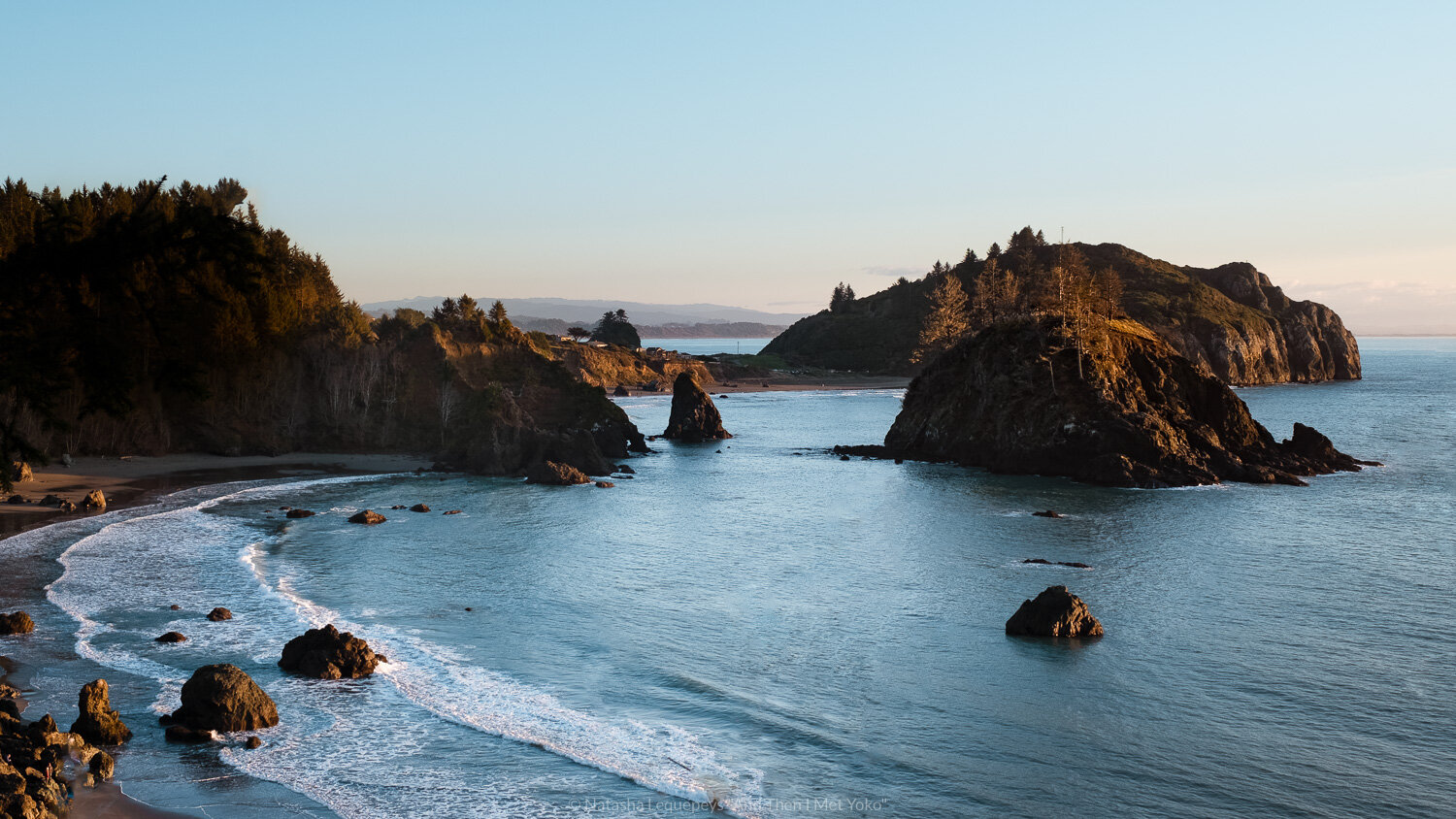
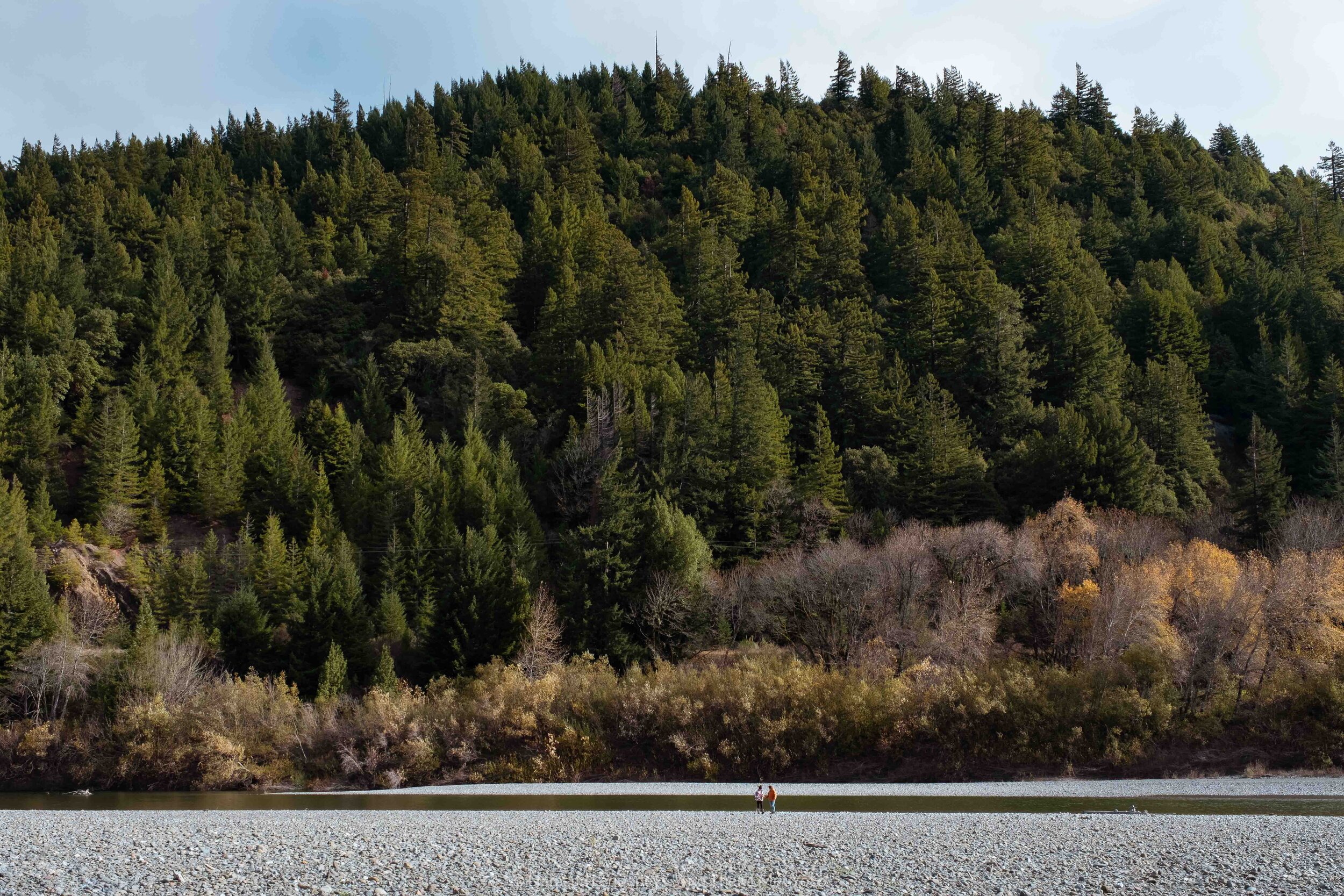
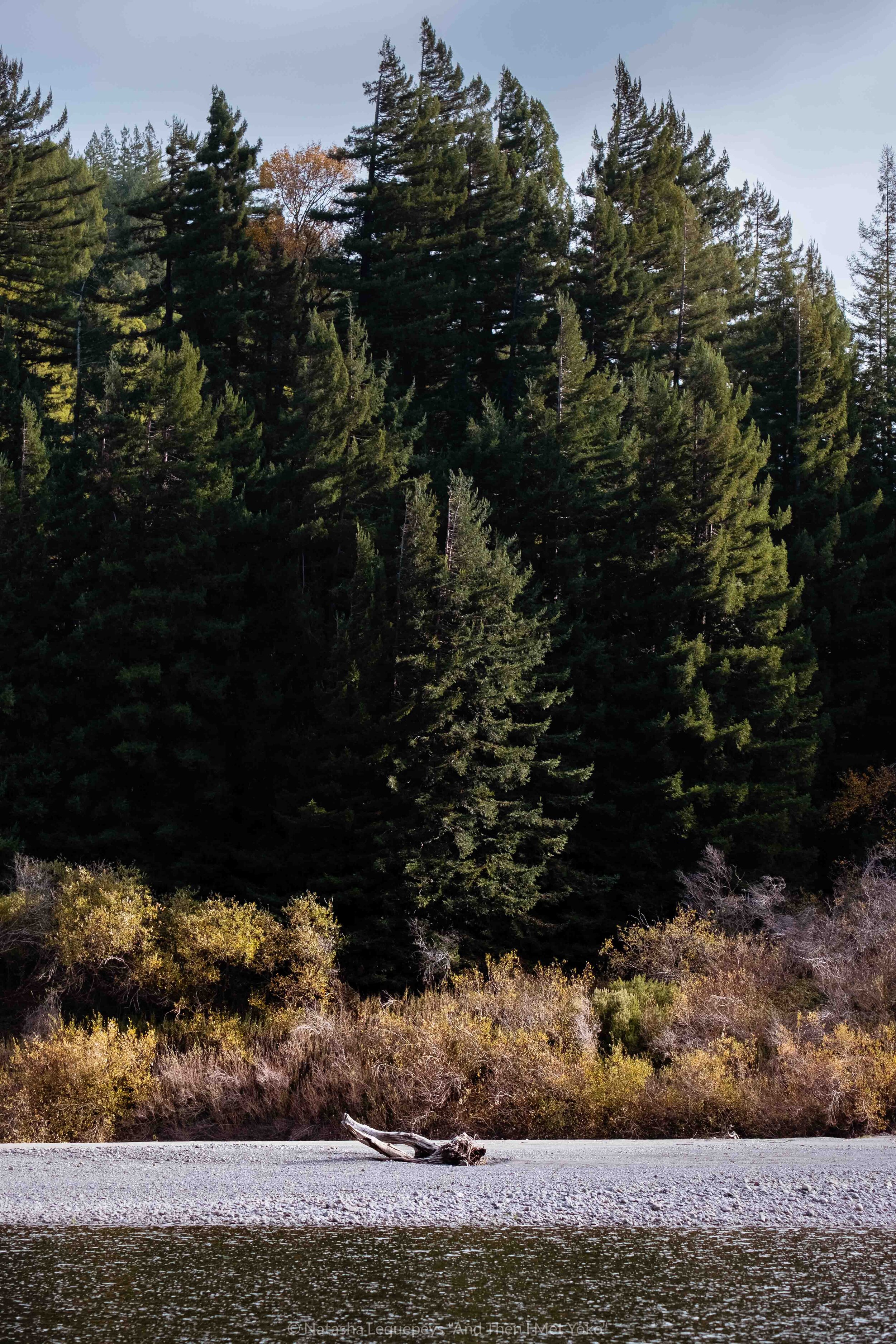

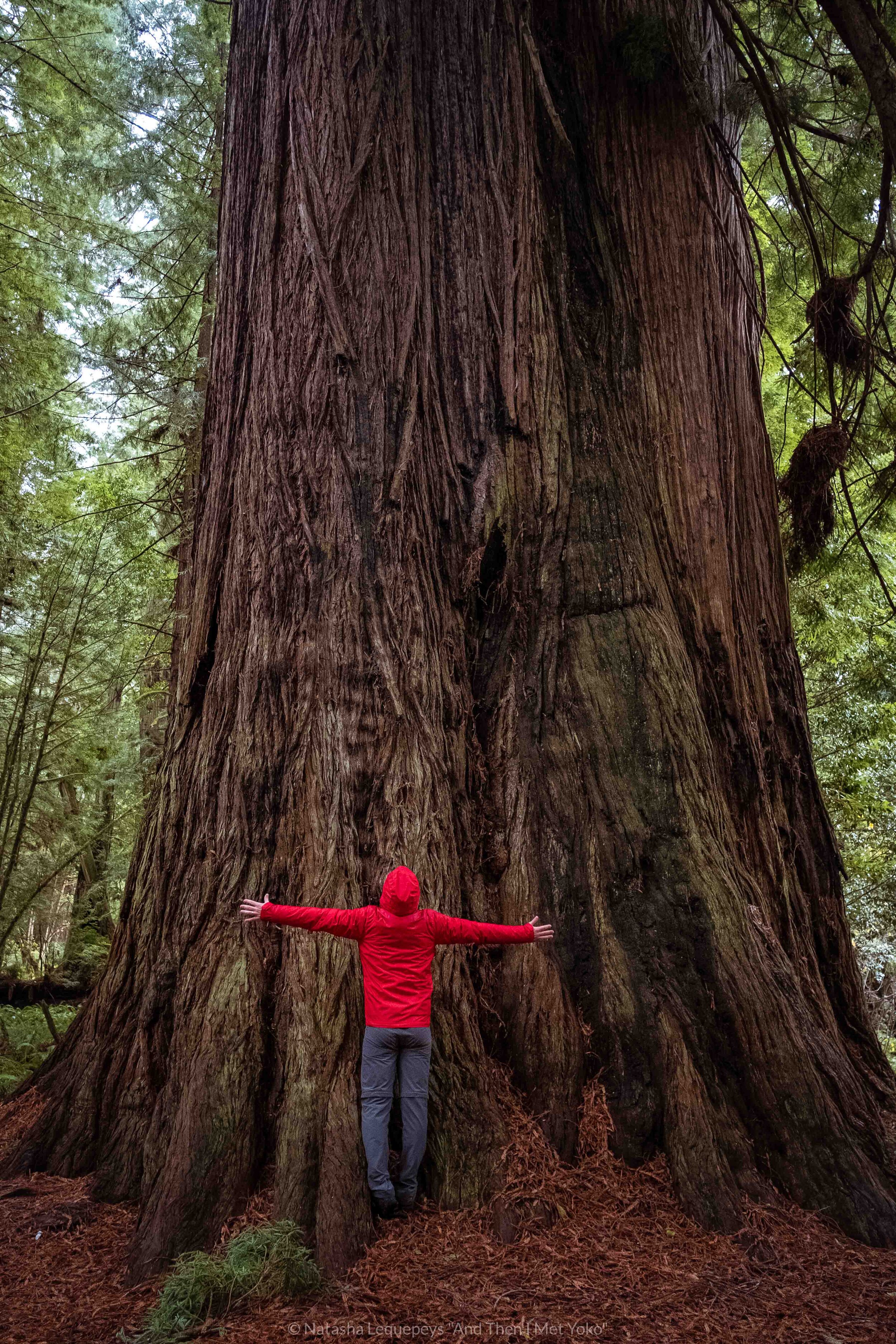








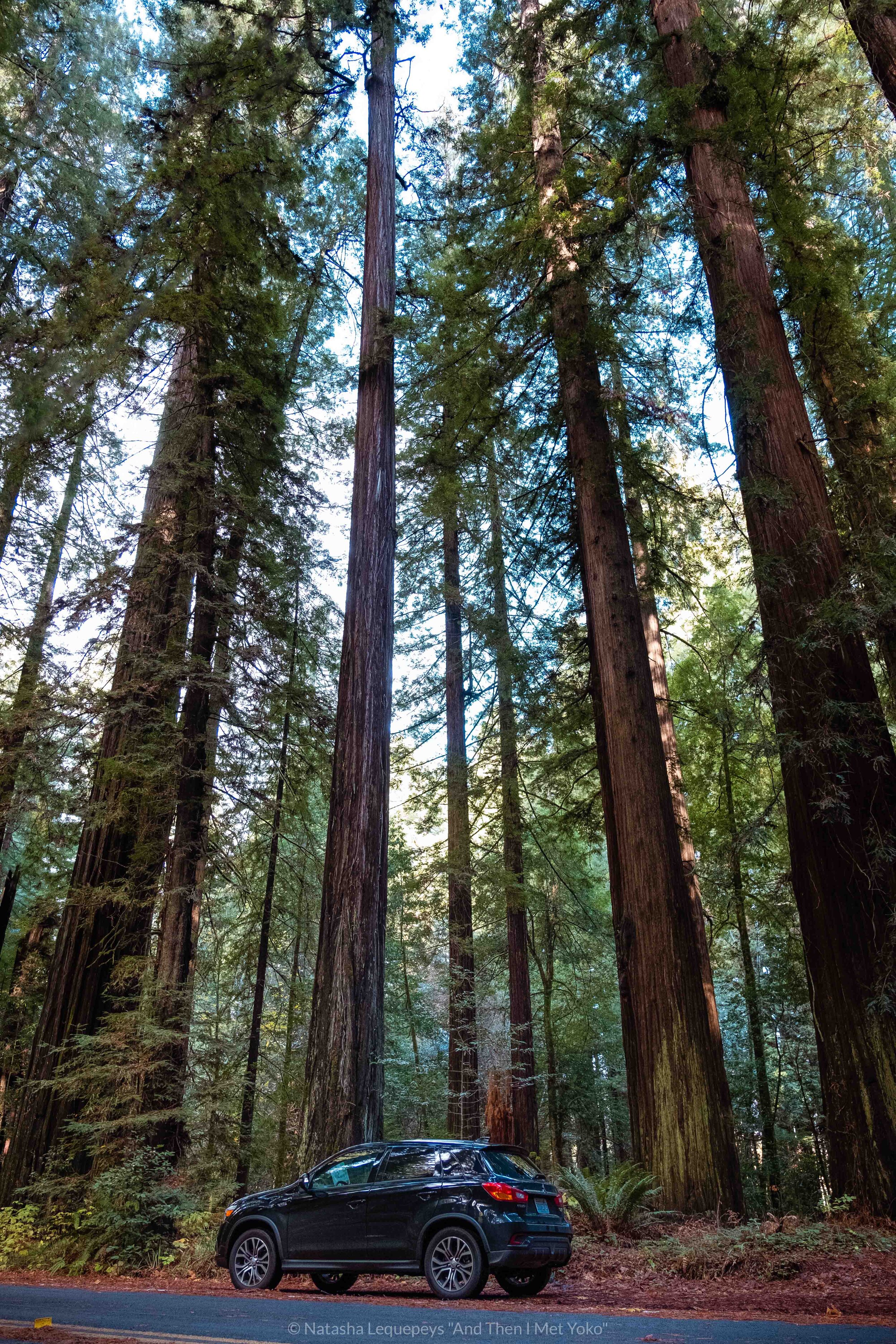








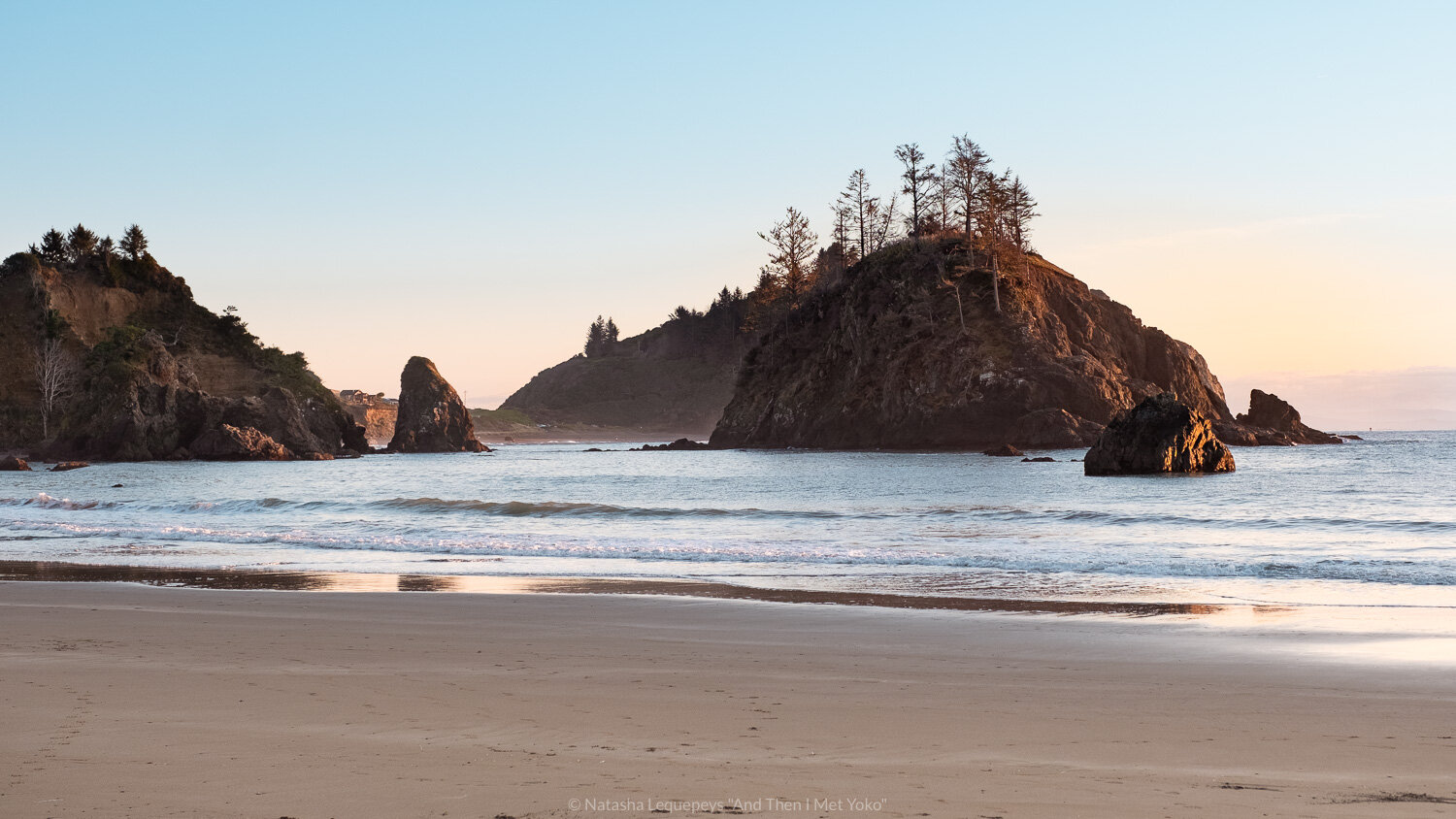
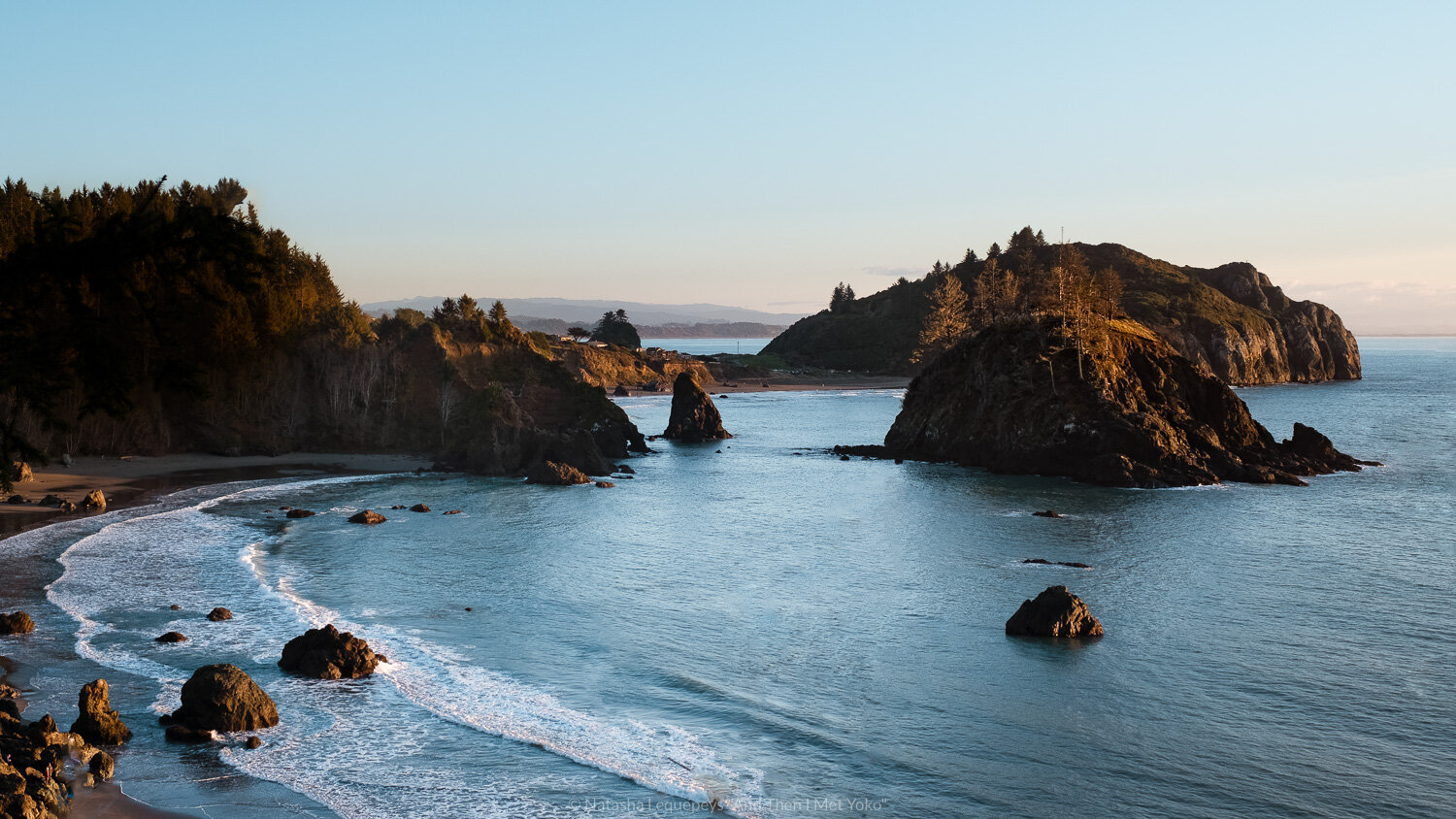
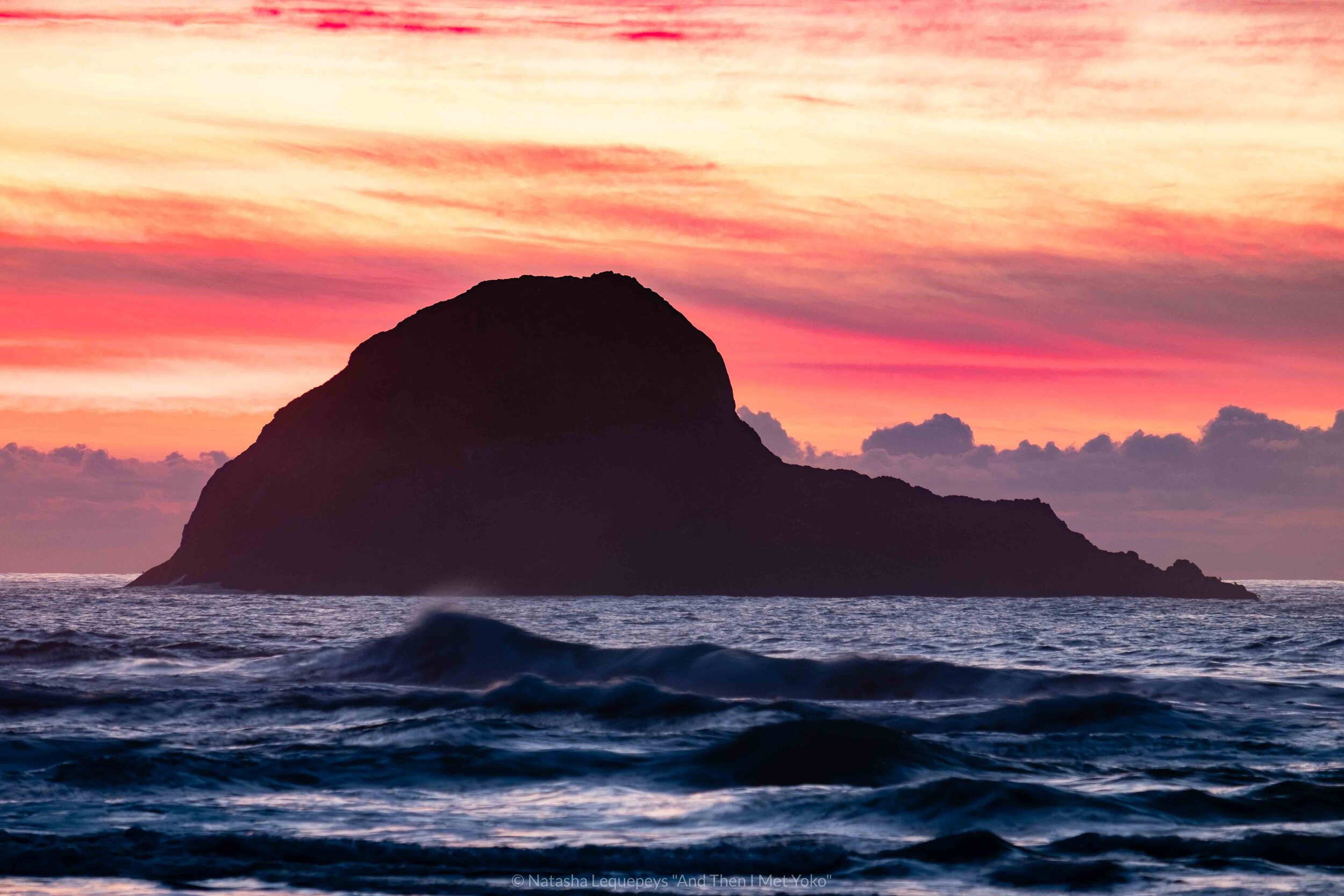






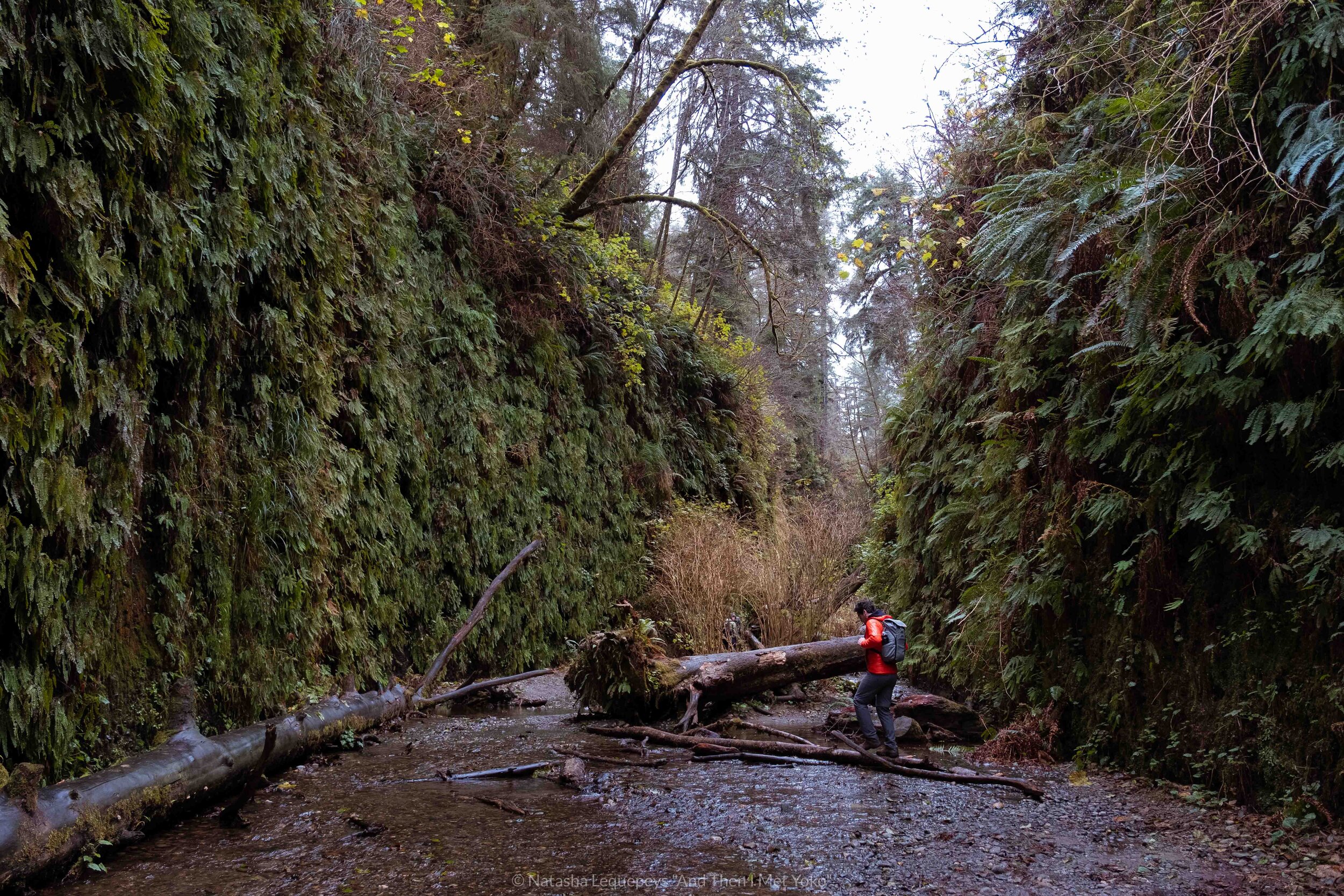
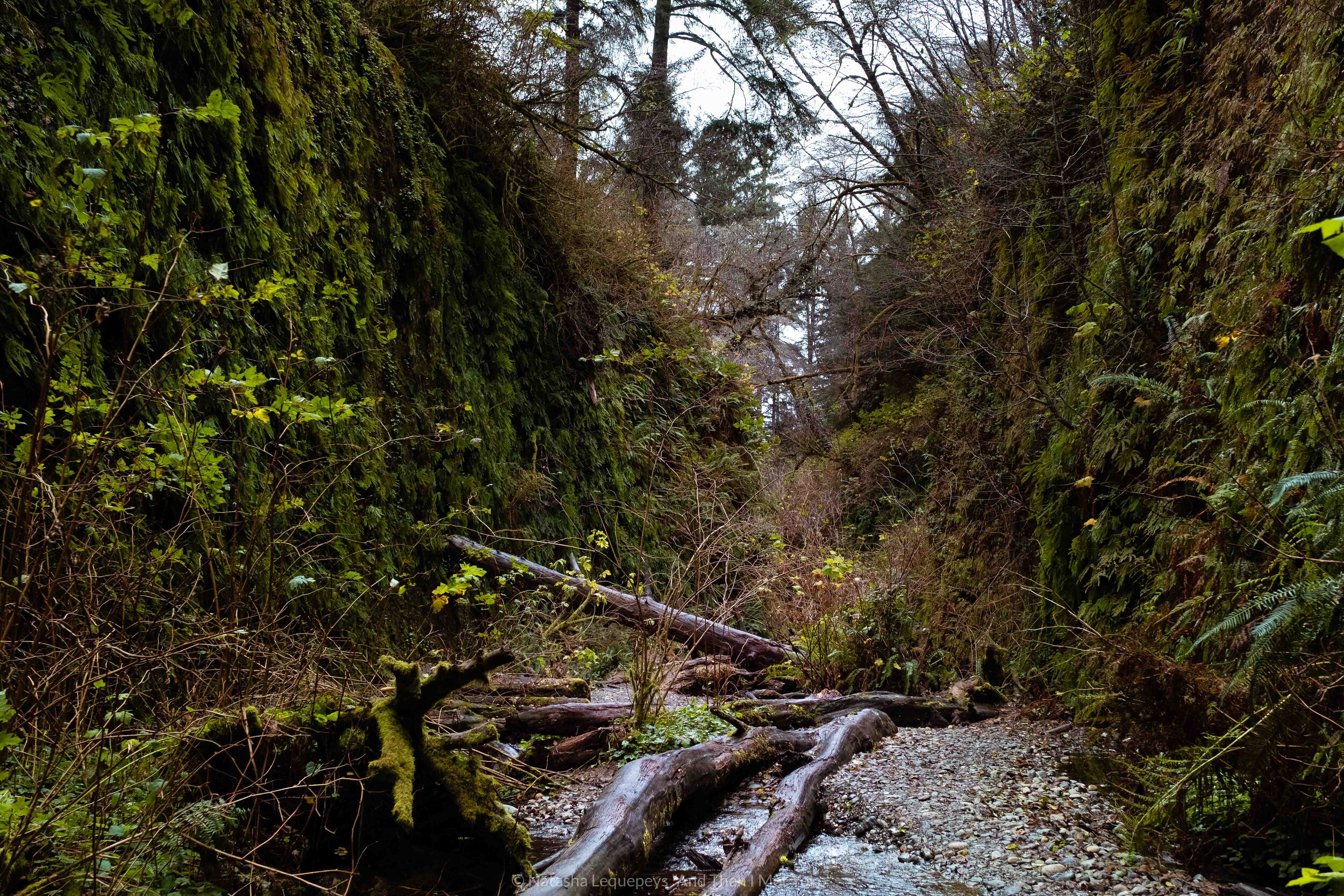
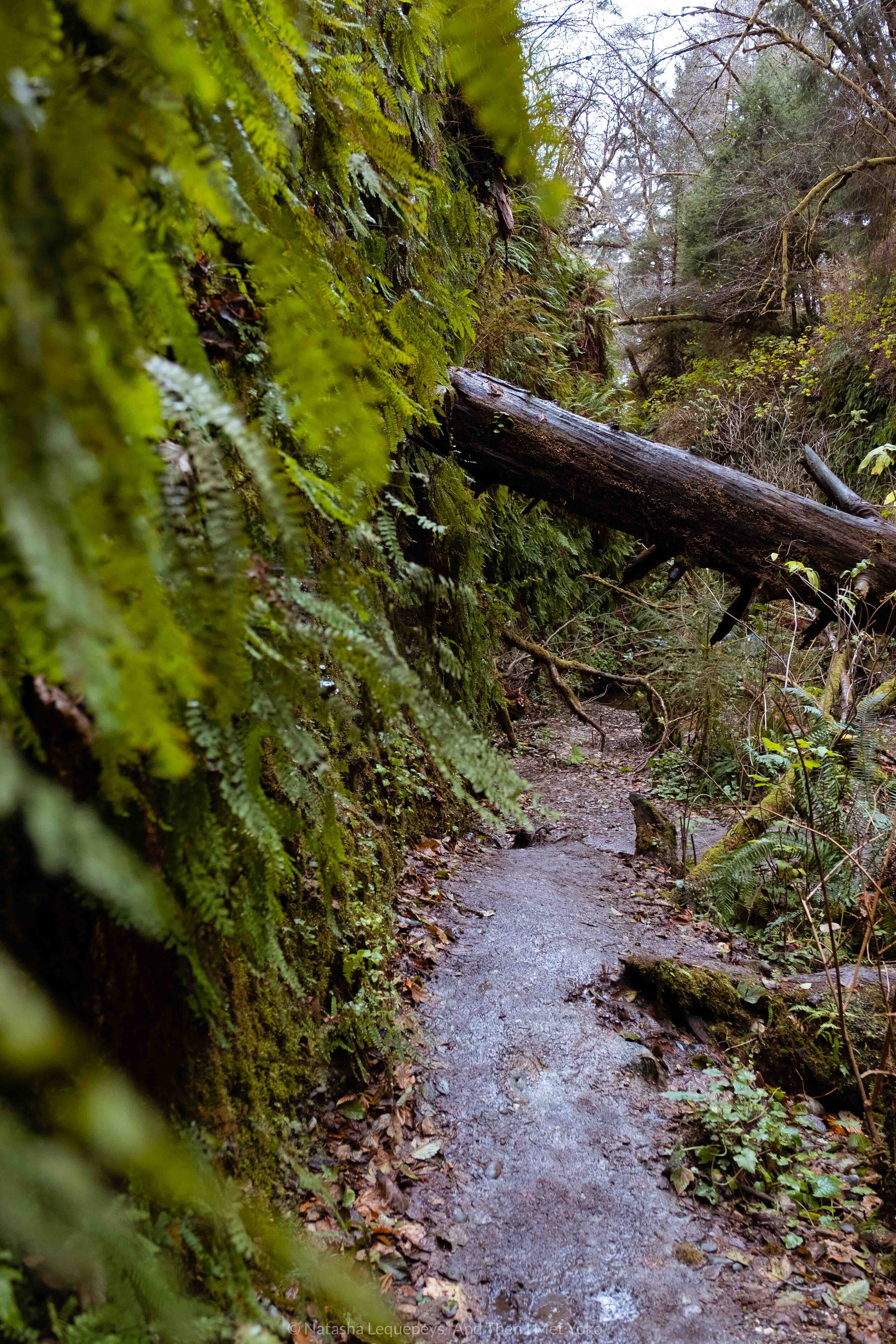
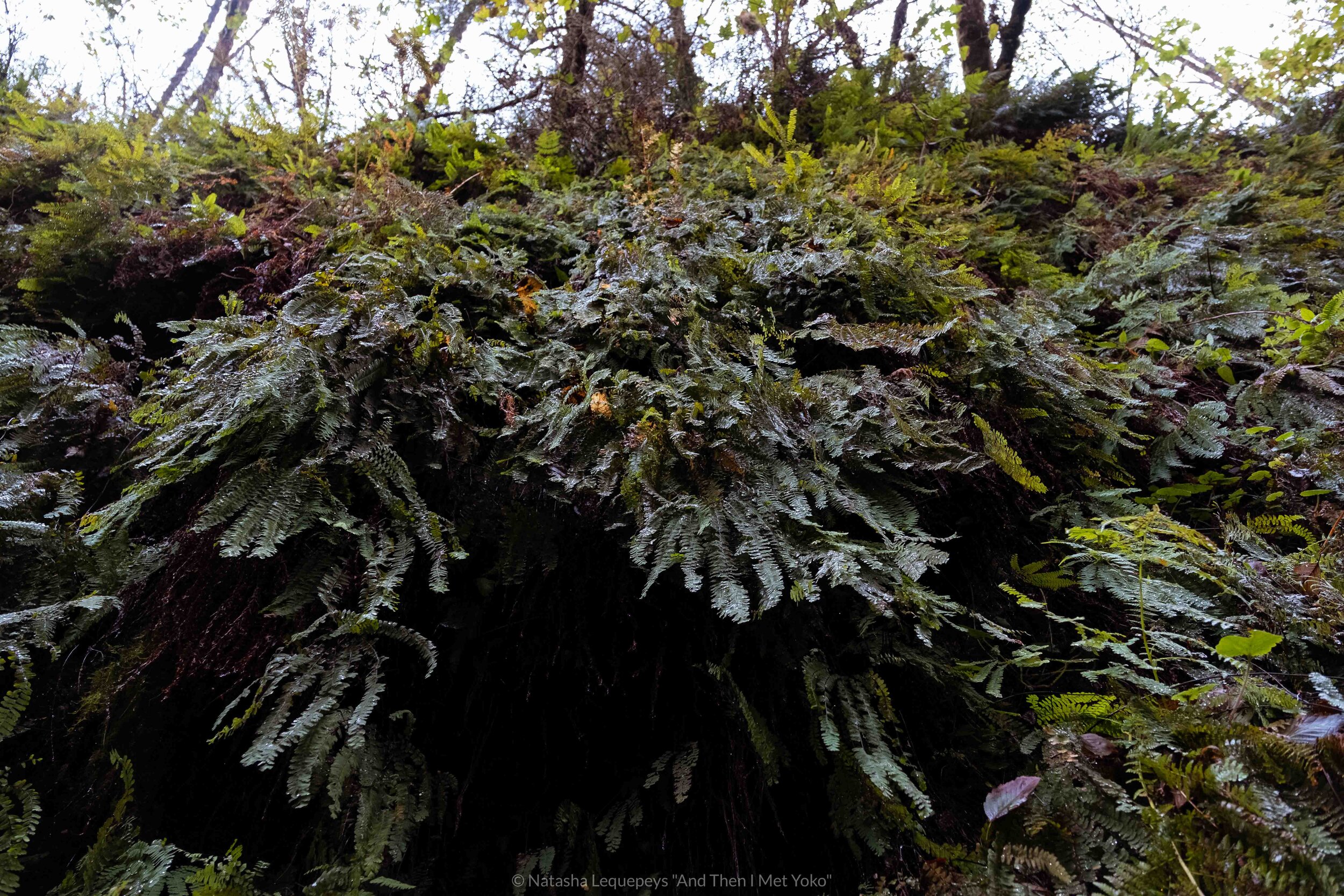


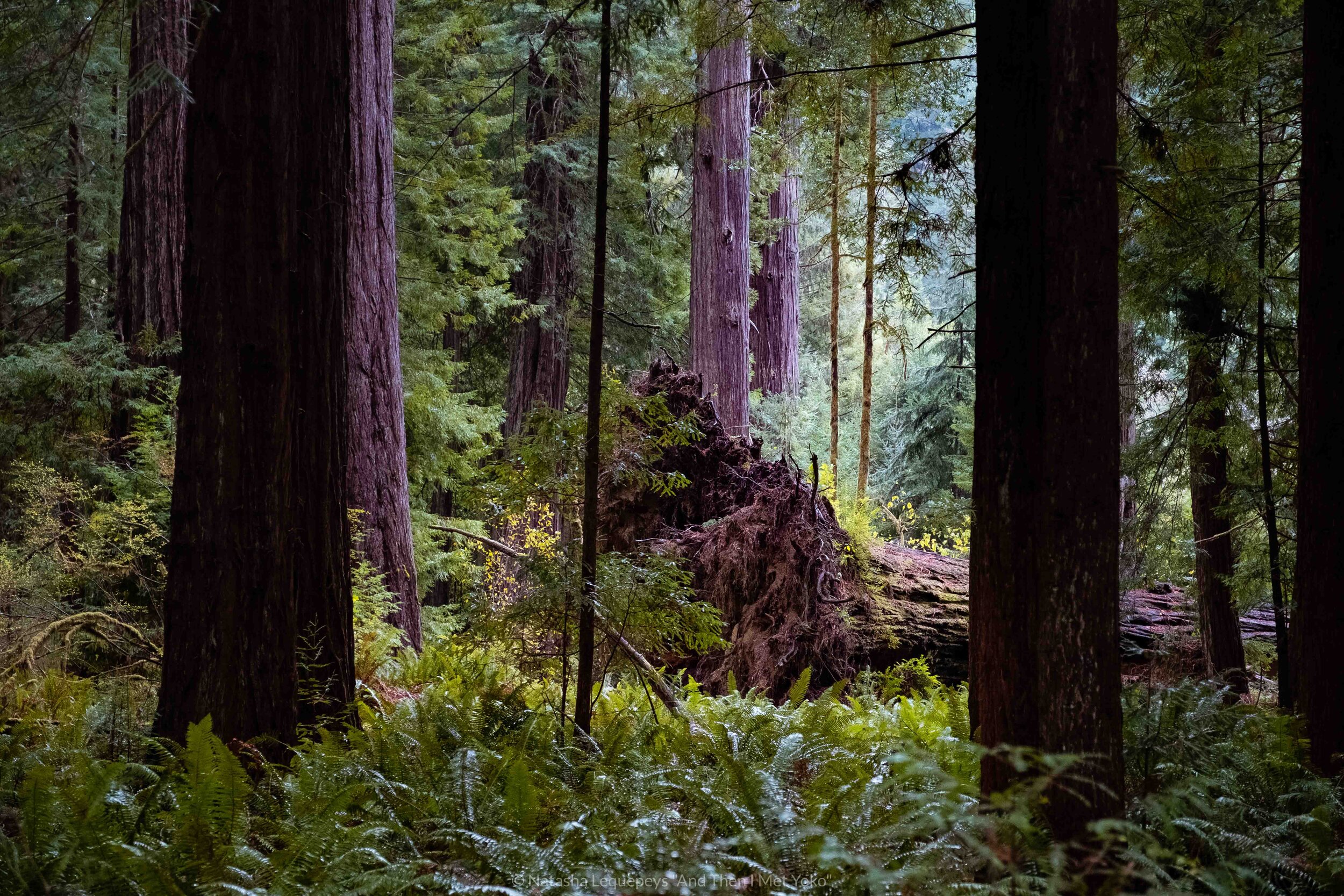
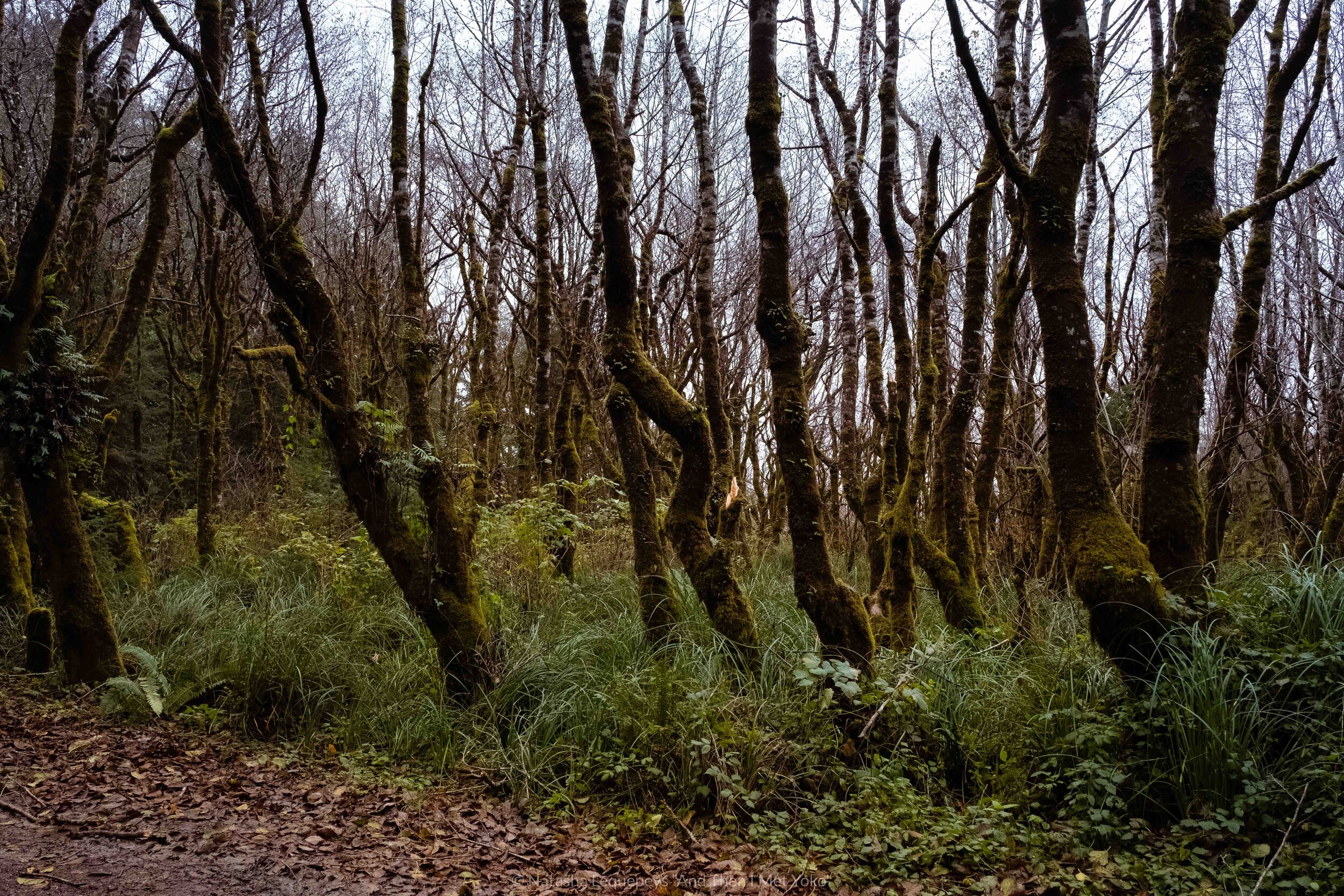
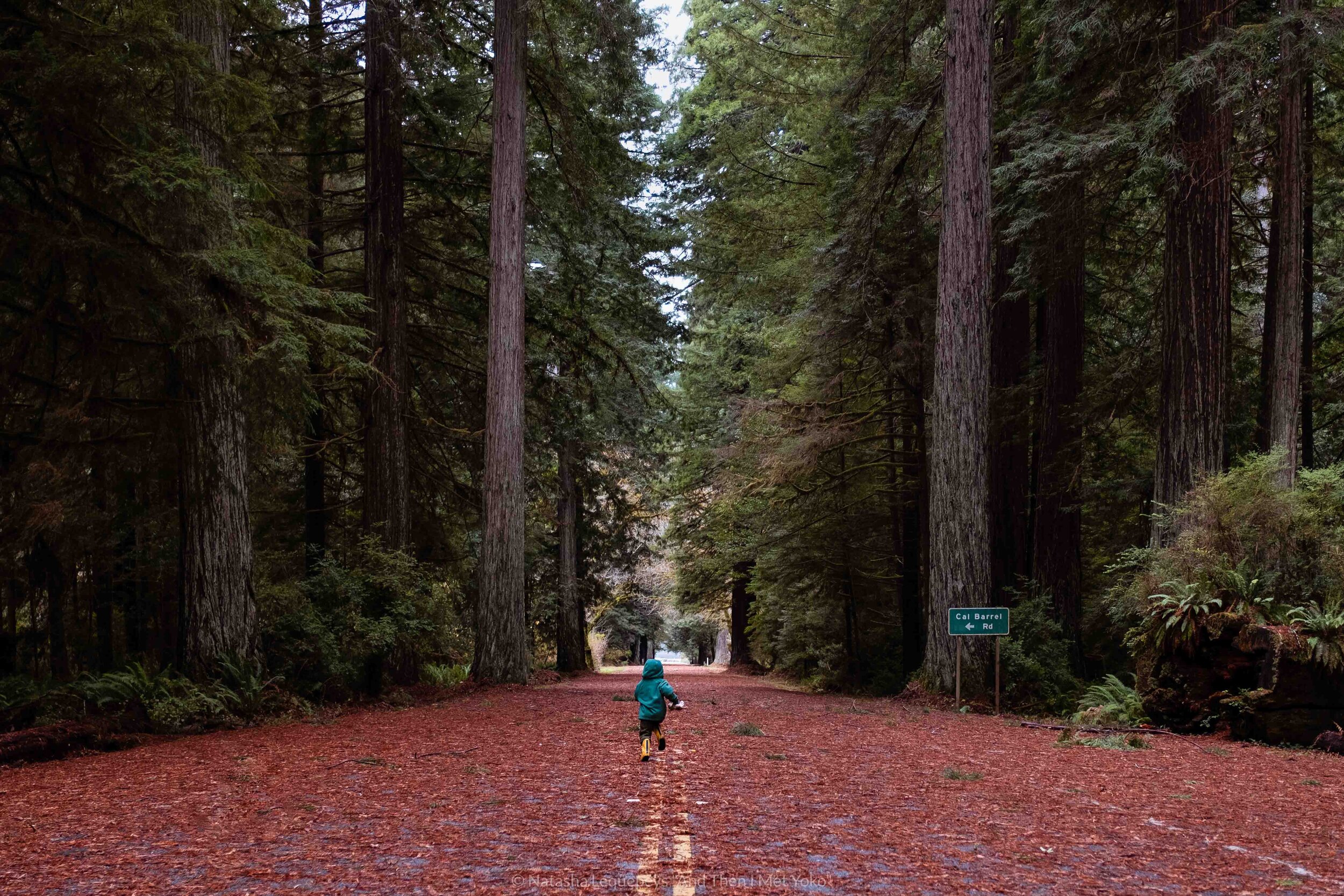
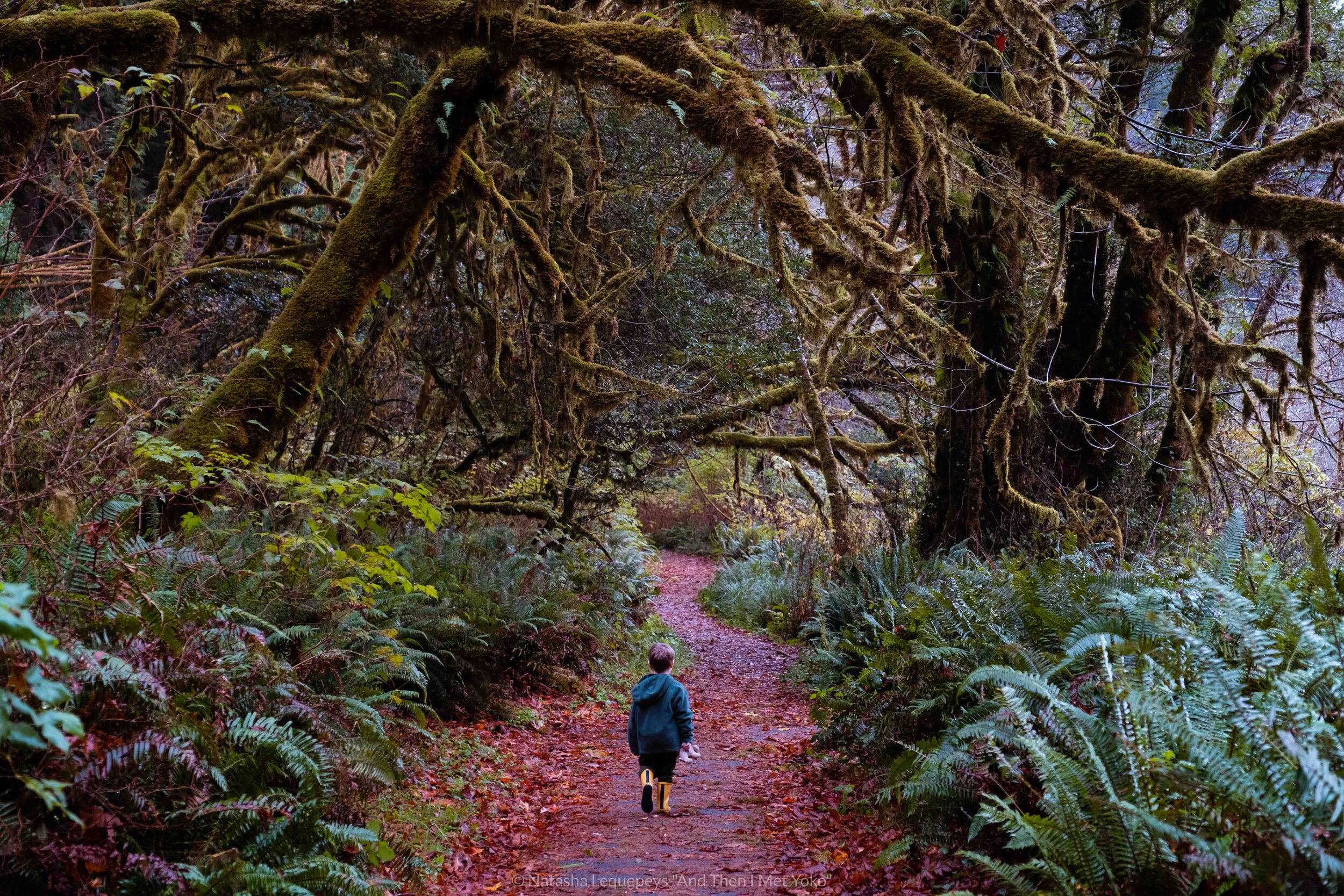



















Get exploring Death Valley with this travel guide and list of 14 must-see spots in the park. Plus, I’ve included a 2-day itinerary, map and other helpful travel tips to make your planning effortless.